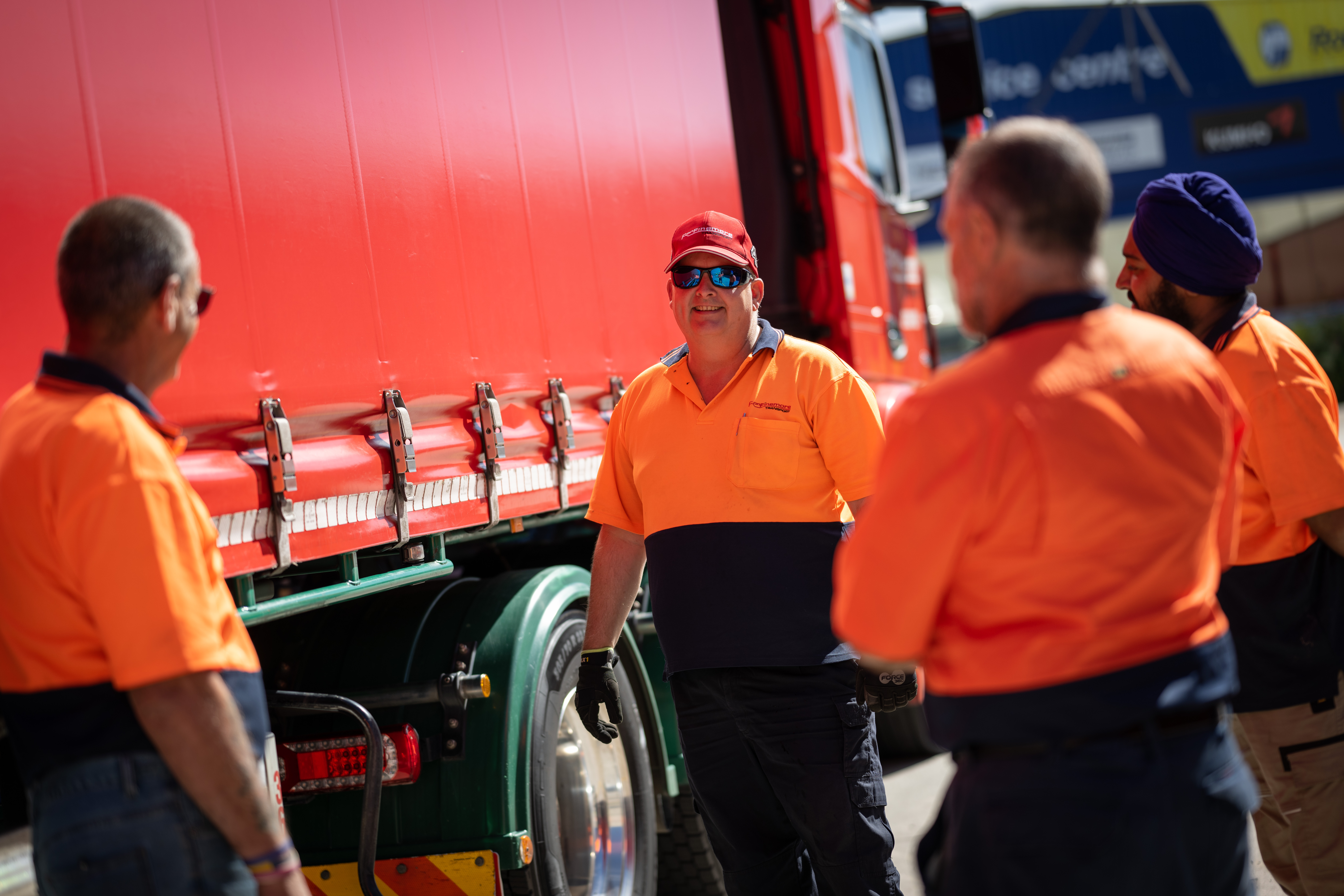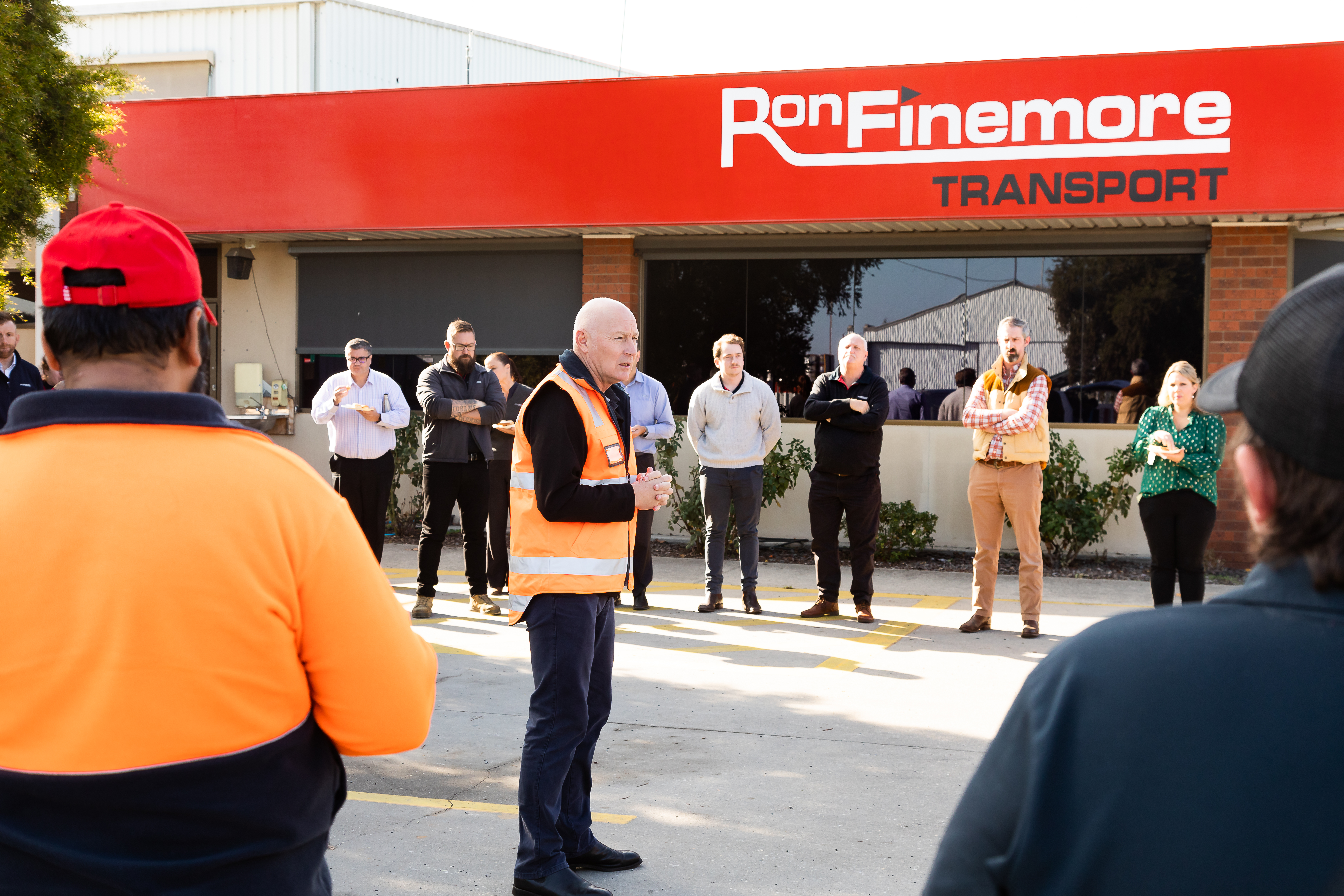Investing in Staff Training: A Key Strategy for Transport Leader’s Success

FEATURED ARTICLE
Investing in staff training: A vital strategy for transport leader’s success
Imagine telling a 10-year-old Kevin Swiney, who drove a farm truck for the first time, that he would one day have a fulfilling career training others to operate some of the world’s most advanced heavy vehicles.
“I guess I have a real love of trucks that all started then when I first learned to drive them, helping out on the farm,” he said.
“I would have been amazed to think I would one day be standing up in front of other drivers and teaching them.”
Today, at the age of 47, Mr. Swiney is living that reality. Working for the esteemed Australian transport and logistics company Ron Finemore Transport (RFT) for the past seven years, he now takes pride in training a team of instructors responsible for imparting knowledge to over 750 drivers.
“It’s very satisfying working at a company that takes driver training so seriously and being able to use my experience to make sure our drivers have that knowledge and skills to do their job well,” he said.
RFT, with its 950-strong workforce, has earned a reputation for its commitment to training, particularly in driver development. Operating a fleet of more than 300 trucks, RFT boasts one of the youngest fleets in Australia, with an average truck age of less than two years.
To maintain a high level of skill and competence, the company invests more than a million dollars annually in continuous driver training, especially as they add new trucks each year to replace older ones.
Leigh Brothers, RFT’s General Manager Fleet, emphasises the constant evolution of truck technology, with manufacturers like Mercedes Benz, Volvo, and Scania continuously working to enhance safety, fuel efficiency, and emission controls.
“The trucks and the technology in them are always evolving so we need our driver team and our workshop to be across all the new developments and how to use them so we can continue to improve our safety and efficiencies,” he said.
“We can have the best vehicles, the best fuel and the best contracts but without the skilled people to drive them these trucks are just something that look nice parked in a garage.”
Mr Brothers joined RFT more than 20 years ago and has worked his way up through the company starting in operations, and then after sales service, workshop fulfilment, maintenance analytics, workshop management, and external supply network manager, and was recently promoted into his new role.
“There have always been opportunities for development and strong training pathways offered, in logistics – studying for a Diploma in logistics was one of the opportunities I took,” Mr Brothers said.
“It’s easy to stay enthusiastic about your work with an organisation that has its focus on people and helping them be the best they can be.”
Mark Parry, RFT’s Managing Director, reiterates the company’s unwavering belief in the value of investing in training and development for its staff. He underscores that core values are only meaningful when translated into action, and training serves as a significant means of living up to those values.
“Our core values are safety, reliability, cost effectiveness and people, but core values can be just a set of words if you’re not acting on them,” he said.
“The true meaning and intent are what you do to live those values and training is a significant way to do that.
“That is why we are so committed to training for our drivers of course, but also across the whole company.”
Mr Parry said continuous high-quality training delivered benefits for both the business and its people.
“This is a dynamic business and we’re always investing in new equipment and systems and interfaces, so we’ve got to make sure we’re equipping our people with the right tools and supporting them to continue to learn and develop,” he said.
“If there is some training or further education someone wants to undertake that will help them do their job better or maybe allow them to advance through the company, or improve the way the company operates, we are always open to that.”
An example of this culture is evident in Dhaval Pathak, RFT’s Compliance Manager, who joined the company in January 2022.
Recognising the potential benefits of improving staff proficiency in using spreadsheet software Excel, Mr Pathak organised a day’s training on-site at the Wodonga depot, with enthusiastic participation from 13 staff members across various departments.
The positive response and visible impact of the training reaffirmed that a supportive environment that encourages learning can foster productivity and job satisfaction.
Indeed, RFT stands as a testament to the fact that investing in staff training is not only beneficial for the workforce but also vital for the company’s success.
As the transport industry continues to evolve, ongoing education and training become indispensable tools for empowering employees with the necessary skills to adapt to changes and drive the organisation forward.
A commitment to investing in staff training and development is a hallmark of true leadership in the transportation sector.
Featured Article source


